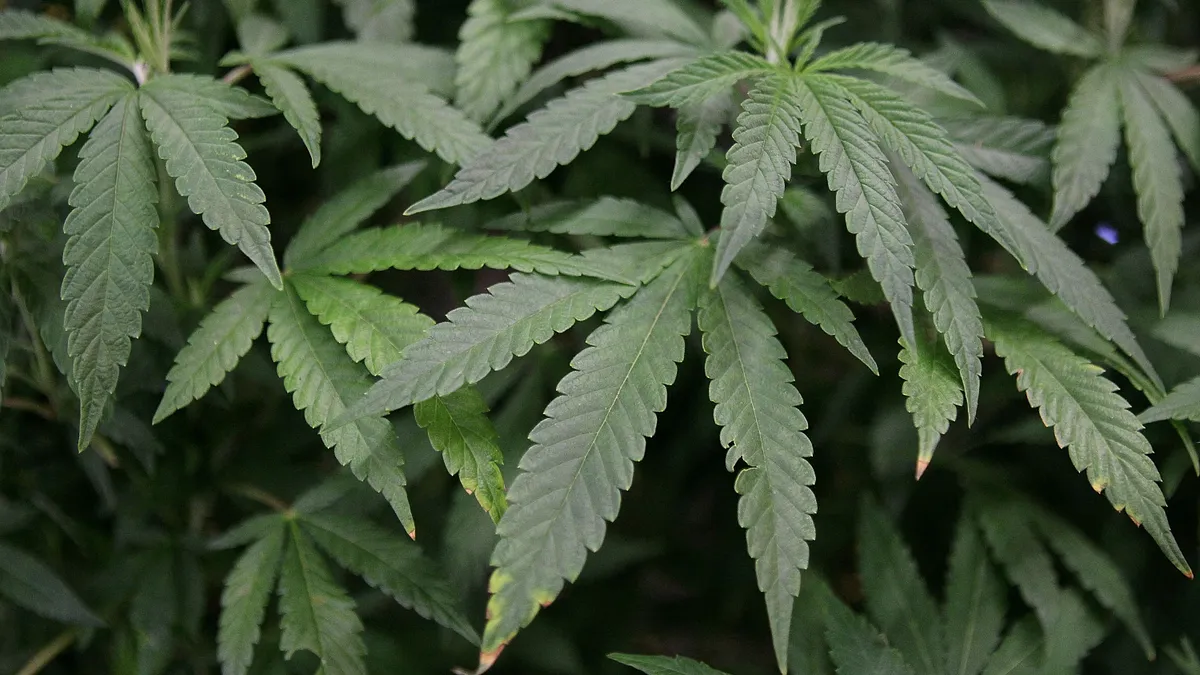Dive Brief:
- Language that would provide protections for banks that serve legal cannabis businesses was not included in the latest bicameral version of the 2022 National Defense Authorization Act (NDAA) filed Tuesday, despite efforts from lawmakers and industry trade groups to fold the provisions into the bill.
- The Secure and Fair Enforcement (SAFE) Banking Act, which was included in the House-passed version of the NDAA in September, has been introduced in every Congress since 2013 by Rep. Ed Perlmutter, D-CO, and has passed the House five times. The Senate, however, has never voted on the measure.
- Perlmutter on Tuesday tweeted his disappointment that SAFE Banking was not included in the NDAA text, and said he planned to file an amendment that afternoon with the House Rules Committee, a move he later did not pursue following a discussion with House Speaker Nancy Pelosi, according to Marijuana Moment.
Dive Insight:
"The SAFE Banking Act has been sitting in the Senate for three years and with every passing day their unwillingness to deal with the issue endangers and harms businesses, their employees, and communities across the country," Perlmutter said in a statement Tuesday. "My work on this bill is far from over. As Speaker Pelosi and Senate Majority Leader [Chuck] Schumer are aware, going forward, I plan to pursue every possible avenue to get SAFE Banking signed into law."
Public safety has been a major talking point among the bill’s supporters, many of whom say the mostly cash-based nature of the cannabis industry is putting marijuana businesses and the communities in which they operate at risk.
Banks have largely refrained from servicing marijuana-related businesses due to cannabis's classification as a Schedule 1 drug. As a result, many such businesses deal primarily in cash, making them targets of theft, cannabis reform advocates argue.
The attempt to fold SAFE Banking into the NDAA isn’t the first time lawmakers have tried to attach cannabis banking legislation to larger measures.
House Democrats tried to fold it into two COVID-19 relief bills this year, but the language was not included in the bill President Joe Biden signed in March.
The exclusion of SAFE Banking from the current version of the NDAA is the latest setback for cannabis reform advocates and bank trade groups who had hoped to see 2021 become the year the text finally becomes law.
Democrats, who have historically been more open to cannabis reform than Republicans, gained control of the Senate with the 2020 election. However, the chamber has served as a roadblock to the bill, as lawmakers such as Schumer, D-NY, and Sen. Cory Booker, D-NJ, indicated a preference to pass more comprehensive cannabis legislation ahead of the narrower SAFE Banking Act.
Key lawmakers in the Senate have turned their focus to the Cannabis Administration and Opportunity Act (CAOA), draft legislation that would remove cannabis from the federal list of controlled substances and expunge federal nonviolent marijuana crimes.
"The banking bill only deals with a small part of [issues related to cannabis], but not what needs to be done. We need a broad comprehensive bill," Schumer said in July.
Meanwhile, the SAFE Banking Act has garnered support from bank trade groups such as the American Bankers Association (ABA), the Credit Union National Association (CUNA) and the Independent Community Bankers of America (ICBA).















